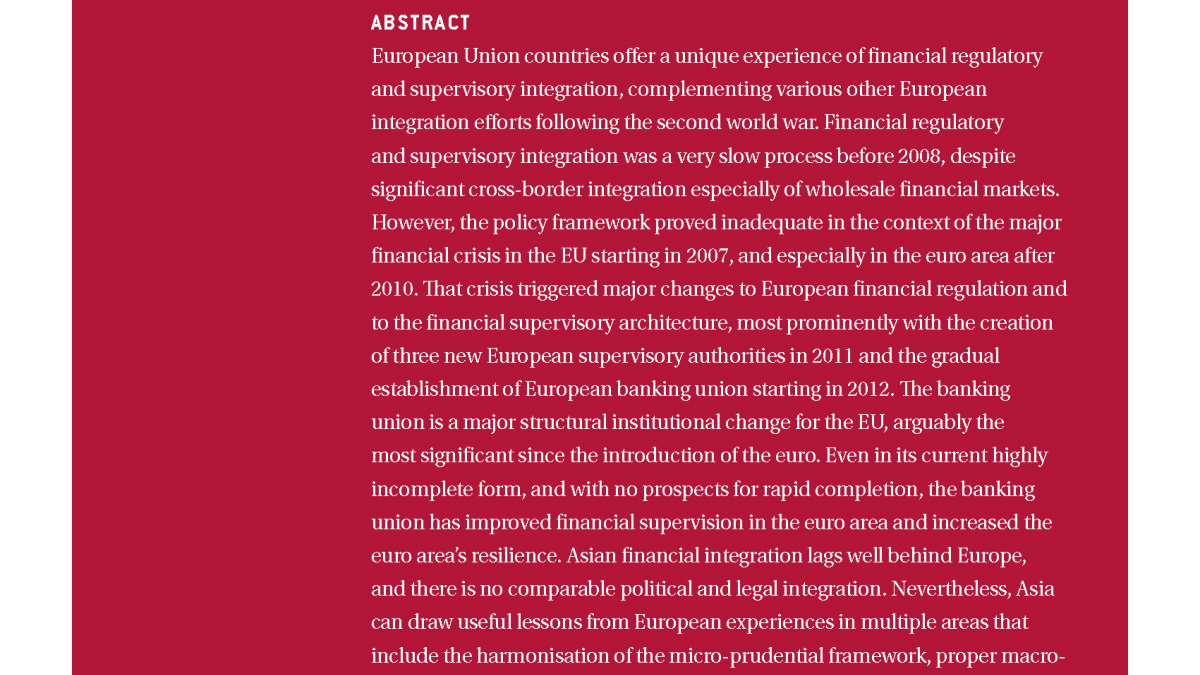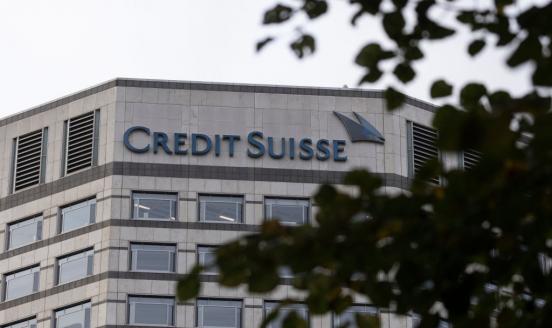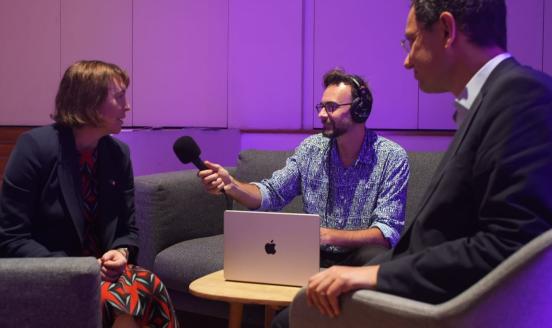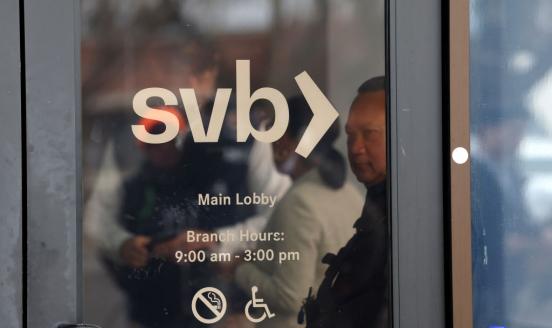Reform of the European Union financial supervisory and regulatory architecture and its implications for Asia
This Working Paper reviews recent developments in the EU’s financial supervisory and regulatory architecture with a view to draw out lessons for regi

European Union countries offer a unique experience of financial regulatory and supervisory integration, complementing various other European integration efforts following the second world war.
Financial regulatory and supervisory integration was a very slow process before 2008, despite significant cross-border integration especially of wholesale financial markets.However, the policy framework proved inadequate in the context of the major financial crisis in the EU starting in 2007, and especially in the euro area after 2010.
That crisis triggered major changes to European financial regulation and to the financial supervisory architecture, most prominently with the creation of three new European supervisory authorities in 2011 and the gradual establishment of European banking union starting in 2012.
The banking union is a major structural institutional change for the EU, arguably the most significant since the introduction of the euro. Even in its current highly incomplete form, and with no prospects for rapid completion, the banking union has improved financial supervision in the euro area and increased the euro area’s resilience.
Asian financial integration lags well behind Europe, and there is no comparable political and legal integration. Nevertheless, Asia can draw useful lessons from European experiences in multiple areas that include the harmonisation of the micro-prudential framework, proper macro-prudential structures, and participation in global financial authorities.



